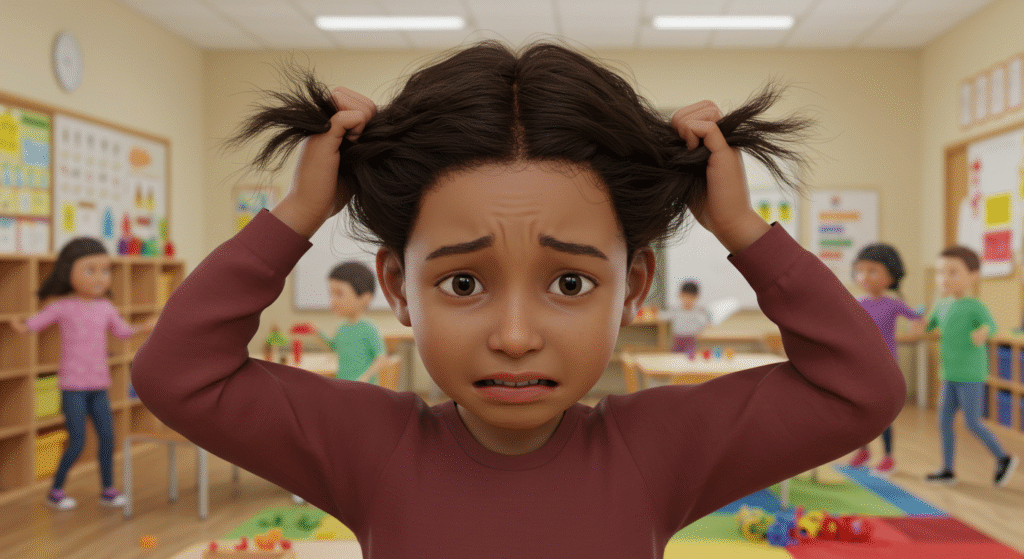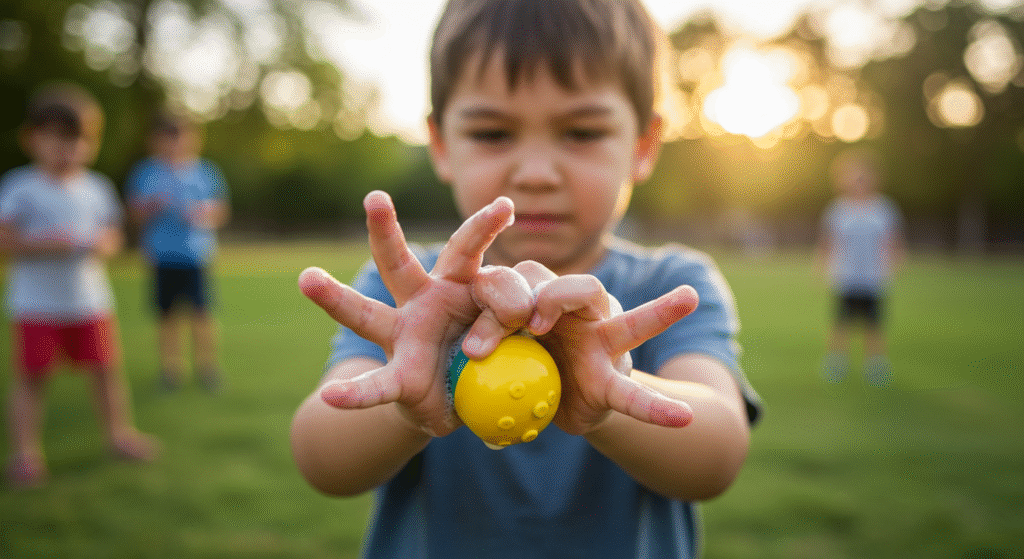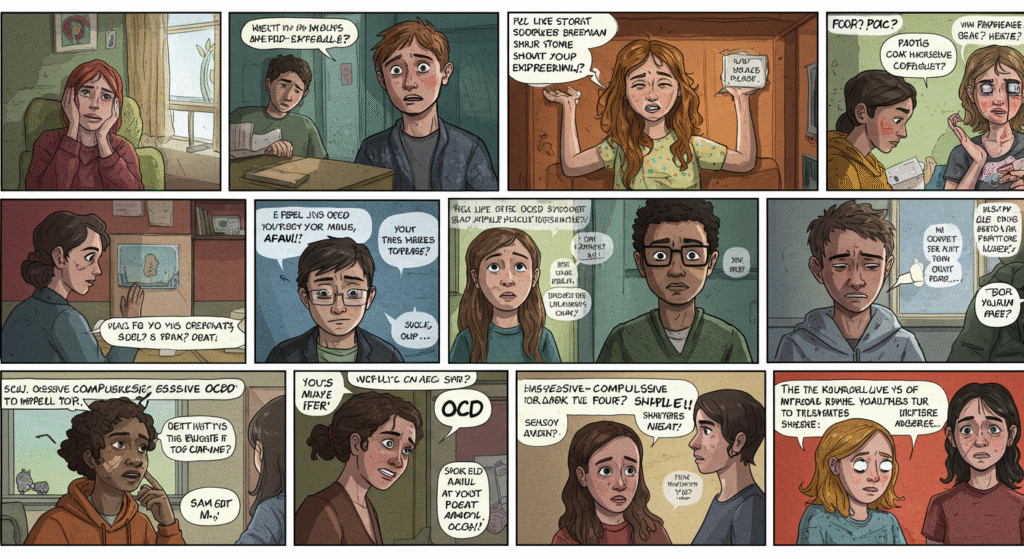Obsessive-Compulsive Disorder (OCD) is often misunderstood, mainly when it affects children. While most people associate OCD with repetitive behaviors in adults, the reality is that children, too, can experience this condition in deeply distressing and confusing ways. As a parent, seeing your child struggle with unwanted thoughts or rituals can be both alarming and overwhelming.
This article offers a positive and insightful perspective on understanding OCD in children. It shares what parents should know—from recognizing early signs to supporting emotional well-being and building a healthy home environment. It’s not a clinical diagnosis guide but a parent-focused resource to help you navigate this journey with empathy, awareness, and confidence.
What Is OCD?
OCD is a condition that causes individuals to experience unwanted thoughts (obsessions) and feel driven to perform certain behaviors (compulsions) to manage anxiety. In children, this might look different than in adults. It can be masked by everyday behaviors like organizing toys repeatedly, asking the same questions over and over, or being unusually fearful of germs or harm.
What’s important to understand is that these behaviors aren’t about being “picky” or “difficult.” They are driven by a deep need to relieve anxiety and discomfort — something children might not even know how to express.
Common OCD Signs in Children
Recognizing OCD in children isn’t always straightforward. Kids often don’t have the words to explain what’s bothering them. Here are some common signs parents might observe:
- Repeating specific actions (like washing hands or tapping objects)
- Insisting on specific routines and becoming very upset when they’re disrupted
- Expressing irrational fears (e.g., of harm coming to loved ones)
- Repeating questions for reassurance, even after being answered
- Spending a lot of time on tasks due to rituals or checking
- Avoiding particular objects or places without clear reasons
Every child is different, and not all repetitive behaviors are OCD-related. But if something seems persistent and distressing, it’s worth exploring further.

Why It’s Important to Notice Early
The earlier parents become aware of patterns that might signal OCD, the sooner they can begin to support their child’s emotional needs. Childhood is a critical time for developing confidence, coping skills, and relationships, and OCD can interfere with these things if left unacknowledged.
Noticing is not about labeling or diagnosing your child, but listening closely and responding compassionately. Many parents who have shared their stories say that simply recognizing their child’s struggles was the first and most powerful step.
How OCD Might Feel to a Child
Imagine being stuck in a loop of worry, fear, or doubt — but unable to explain why. That’s how many children with OCD describe their experience. They might know their thoughts or actions don’t “make sense,” but they still need to do them.
Some children say things like:
- “I feel like something bad will happen if I don’t do this.”
- “My brain keeps telling me to recheck it.”
- “I don’t want to think these thoughts, but they won’t stop.”
Understanding this inner world can help parents respond in a way that builds trust and emotional safety.
Positive Parenting Mindset for OCD Support
Having a child with OCD doesn’t mean you’ve done anything wrong, and it doesn’t define who your child is. They are still full of potential, creativity, and curiosity. Here are positive mindset shifts for parents:
1. Curiosity Over Judgment
Approach your child’s behaviors with curiosity, not criticism. Try asking gentle, open-ended questions like, “I noticed you’re checking that again — does something about it feel uncomfortable?”
2. Validate Emotions
Your child’s feelings are very real, even if the thought or action doesn’t seem logical. Phrases like “That must feel really hard” or “I can see this is bothering you” can help your child feel seen and heard.
3. Celebrate Small Wins
Every time your child takes a step toward managing their OCD, no matter how small, acknowledge it. Positive reinforcement builds confidence.
4. Practice Patience
Some days will be easier than others. Remind yourself that progress is not always linear. What matters most is consistency and connection.

Creating an OCD-Friendly Home Environment
A supportive home environment can go a long way in helping children with OCD feel safe and empowered. Here are practical, non-clinical tips to help create that space:
1. Establish Gentle Routines
Children often feel more secure when they know what to expect. Routines that offer structure, without being rigid, can reduce anxiety.
2. Make Room for Expression
Please encourage your child to draw, write, or talk about their feelings. Not all children will want to open up immediately, and that’s okay — just let them know the door is always open.
3. Minimize Pressure
If your child is struggling with tasks due to OCD, avoid pushing them too hard. Instead, offer choices and reassure them that taking things one step at a time is okay.
4. Encourage Play and Creativity
OCD can feel like it takes over a child’s mind. Balancing that with unstructured play, creative outlets, and laughter can restore a sense of joy and normalcy.
Real Stories, Real Strength
Sharing real stories of children and families navigating OCD can be powerful and relatable. Here are a few examples (anonymous or adapted for privacy):
Sana, age 8, started showing signs of OCD when she became obsessed with washing her hands every 15 minutes. Her mom noticed it wasn’t just a hygiene habit but a source of stress. They began keeping a diary of her “worry times” and “happy times” — a small act that helped Sana gain more awareness and express herself without fear.
Jake, age 10, was constantly arranging his books and toys in a specific order. Instead of stopping him, his father asked Jake about the stories behind the items. This opened up conversations about Jake’s worries and gave his dad a way to connect without judgment.
Stories like these remind us: children are resilient, and with understanding and support, they can thrive.

Words Parents Often Need to Hear
Raising a child with OCD can be emotionally intense. It’s important to remember:
- You are not alone.
- You are doing your best.
- Your child is not defined by their OCD.
- Connection is more important than perfection.
Many parents feel guilt or confusion when faced with OCD. However, the most powerful thing you can offer your child is unconditional love and steady support.
How to Keep Learning (And Keep Your Website Growing)
Since your website focuses on OCD awareness, your role in educating and encouraging parents is incredibly valuable. Here are some positive ways to build your platform while earning with AdSense:
✅ Create Series-Based Content
Break down topics like “OCD and School Life,” “OCD Myths vs. Facts,” or “Sibling Support for OCD” into a series. This encourages repeat visits and boosts SEO.
✅ Include Real Stories
Feature guest stories or anonymous parent interviews to increase engagement. These also build community — something Google and readers both value.
✅ Use Natural Keywords
Naturally integrate key phrases like “how to support a child with OCD” or “understanding OCD in kids.” Don’t force keywords; let them flow with your voice.
✅ Encourage Comments
End your articles with a warm invitation like:
“Have you experienced something similar with your child? Share your thoughts or story in the comments — your voice matters here.”
✅ Keep Your Tone Trustworthy
Since you’re not a licensed psychologist, always position your content as educational and experience-based, not medical. That honesty builds reader trust and aligns with AdSense guidelines.
Final Words
OCD in children is a complex but manageable challenge. It doesn’t define your child or your parenting. With awareness, Patience, and a nurturing environment, children with OCD can lead deeply fulfilling lives.
Your role as a parent is not to fix every worry, but to walk beside your child as they learn to navigate their inner world. Trust your instincts, continue learning, and know that your presence, not perfection, is the most powerful support of all.


Leave a Reply